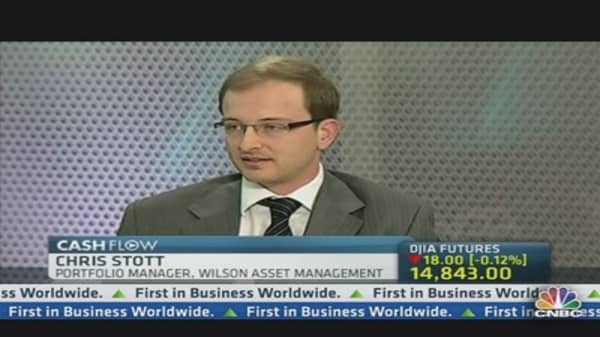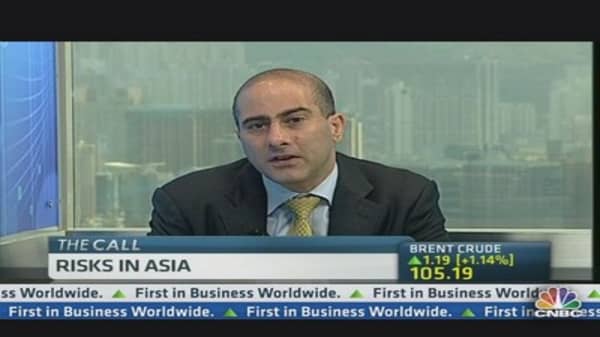Asian markets reversed early gains on Wednesday to close lower after data from China revived fears of a slowdown in the world's second-largest economy.
Australia's S&P ASX 200 tanked 2 percent to fall below the 4,800 level, the Shanghai Composite lost over 1 percent, Japan's Nikkei index fell off an earlier five-week high, and South Korea's Kospi hit a new one-week low.
Activity in China's service sector declined to its weakest level in nine months in June, the official Purchasing Managers' Index (PMI) showed. The report follows two separate PMI surveys earlier this week for the manufacturing sector, which also showed growth falling to multi-month lows.
(Read More: Emerging Market Stocks Now at Cheapest This Year)
Markets are now looking ahead to U.S. event risk later in the day, including trade balance, ADP non-farm payrolls, unemployment claims and the ISM non-manufacturing PMI.




